This article was co-authored by Trudi Griffin, LPC, MS. Trudi Griffin is a Licensed Professional Counselor in Wisconsin specializing in Addictions and Mental Health. She provides therapy to people who struggle with addictions, mental health, and trauma in community health settings and private practice. She received her MS in Clinical Mental Health Counseling from Marquette University in 2011.
wikiHow marks an article as reader-approved once it receives enough positive feedback. This article received 17 testimonials and 83% of readers who voted found it helpful, earning it our reader-approved status.
This article has been viewed 102,783 times.
A nervous breakdown (also known as a mental breakdown) is a temporary condition marked by decreased functioning, usually resulting from stress. A nervous breakdown can happen when stress and life’s demands overwhelm a person’s capacity to deal with them. There are a number of symptoms which can help you to identify whether you are having a nervous breakdown. If you suspect that you might be experiencing a nervous breakdown, it's important to seek help.
Steps
Identifying Mental Symptoms
-
1Reflect on any recent loss or trauma. A breakdown can result from trauma or death of a loved one. It can also be a result of a constant buildup of stress, like work pressures or financial burdens. Think about any recent or unexpected stressors that have overwhelmed you suddenly. Any event that happens suddenly may drain all available resources, leaving you feeling unable to cope.
- This can include a recent death, breakup, or divorce.
- Trauma can include living through a natural disaster, being a victim of theft, violence, or domestic abuse.
-
2Think about whether you have difficulty feeling happiness or pleasure. When suffering from a nervous breakdown, you may experience an inability to feel pleasure. You may feel listless, empty, or apathetic. Nothing may seem to carry any meaning to you, or you feel an overwhelming sense of “going through the motions”. Apathy and withdrawal are symptoms of depression. You may feel deeply depressed as a result or leading up to a nervous breakdown.
- You may want to be happy and feel normal, but you can no longer enjoy your favorite activities.
Advertisement -
3Pay attention to any mood swings. Mood swings are usually in evidence before any nervous breakdown, as they are indicative of emotional exhaustion and poor coping methods. The mood swings may involve:[1]
- Irritability
- Anger combined with guilt and remorse
- Excessive crying spells
- Phases of extreme quietness
- Depressive phases
-
4Pay attention if you’re continuously calling in sick to work. Taking a day to mentally, emotionally, or physically recover from an event is one thing, but if you find yourself continuously calling into work sick, this may be an indication of a breakdown. You may lack the motivation to go into work, or find that you physically cannot make your body get ready and go to work.
- Pay attention if you’ve let your work slide. Even if you come into work, observe your productivity and if it differs drastically from last month.
-
5Be wary of any feelings of helplessness or hopelessness. These are two very common feelings before and during a nervous breakdown. You may feels like you lack the internal resources to cope with your issues, and thus feels helpless. You may experience a feeling of hopelessness, as you are unable to control the circumstances around you and can see no way out of your current predicament. These are symptoms of depression that may contribute to a nervous breakdown.[2] Some other symptoms of depression that may contribute to a nervous breakdown may include:
- Lack of energy
- Fatigue
- Lack of ability to concentrate
- Decreased attention
- Isolation
-
6Think about whether you feel overwhelmed by negative thoughts. In case of a breakdown, you may be constantly thinking excessively negative thoughts and even experiencing positive things or feelings as negative. Common thoughts may include:[3]
- Interpreting meanings in a negative way
- Having a negative filter in your mind, which only allows negative things to pass through.
- Thoughts that say the situation and nervous breakdown will never go away and that you will feel like this forever.
-
7Recognize if you’re isolating. You may find yourself detaching from friends and family and spending most of your time alone. Friends call to set plans and you always turn them down, or the thought of getting together with friends sounds exhausting. When overwhelmed by stress, it may be easy isolate and conserve your energy for working through the stress.[4]
-
8Pay attention to feelings of numbness and detachment. A nervous breakdown can lead you to feel numb and detached from your external environment. You may even feel as if the things happening around you are artificial. Basically, you will no longer feel like you can relate to your environment or to the people in your life.
Identifying Physical Symptoms
-
1Take note of any sleep disturbances. Like in many other disorders, sleep is one of the foremost symptoms of a nervous breakdown. You may toss and turn getting to sleep and may wake up several times throughout the night. You may find yourself sleeping far too much or far too little than you usually sleep.
- Sometimes it is difficult to get back to sleep due to racing thoughts and excessive thinking.
- Though you may feel a need for sleep and feel constantly tired, getting a good night's rest becomes more and more difficult with each passing day.
-
2Examine your hygiene. If you’ve significantly let your hygiene slide, it may be due to extreme stress. You may lack any motivation to take care of your body. This may include failing to shower, use the restroom, brush your hair or teeth, or change your clothes. Perhaps you’ve been wearing the same clothes for days, despite visible stains. You may wear socially inappropriate clothes in public.[5]
-
3Recognize extreme anxiety. Physical symptoms of intense anxiety can lead up to and sustain during a nervous breakdown. If you tend to experience anxiety and then experience a major life event, it can trigger intense symptoms of anxiety that can feel immobilizing.Take note any symptoms of anxiety, which include:
- Tense, clenched muscles
- Clammy hands
- Dizziness
- Panic attacks
-
4Reflect on feelings of exhaustion. You may feel completely lacking in energy. Feeling constantly exhausted or fatigued is another common symptom, as all of your energy is being channeled into coping with the crisis you're experiencing. Even small, everyday activities can feel like massive hurdles to overcome.
- Even basic daily activities such as showering, eating, or even getting out of bed may feel like too much energy to complete.
-
5Look for a racing heartbeat. When experiencing intense stress as a result of a nervous breakdown, you may feel your heart pounding, a tightness in your chest, or a lump in your throat. Despite this, medical testing will not reveal any problems with our heart, as the symptoms are purely stress related.
-
6Think about whether you've had any problems with digestion. An upset stomach and digestive issues are common stress and anxiety-related problems. This is due to the fact that when you are extremely stressed, your body goes into survival mode, and digestion is not at the top of the priority list.[6]
-
7Identify any problems with trembling or shaking. Shaking hands or whole body trembling is one of the most obvious physical symptoms of a nervous breakdown, and one of the most embarrassing. Unfortunately, the embarrassment caused by the trembling and shaking only increases your stress levels.
- Trembling and shaking may be physical manifestations of all the stress your body and mind are experiencing.
Dealing With a Nervous Breakdown
-
1Talk to someone you trust. If you've identified the symptoms of a nervous breakdown, it's important that you talk to someone about it. Staying silent and keeping the stress to yourself will simply make the problem worse. One way to help relieve stress and break from negative thought patterns is decreasing social isolation and increasing social contact with friends. You may feel like you have no energy to see friends, but push through and make time for your friends. They will help you heal.[7]
- Isolation can lead to and exacerbate stress, so make continual efforts to spend time with friends regularly.
- Talk to a trusted friend or family member. Sharing your problems and worries with someone else will ease the burden slightly and help you to feel less alone.
-
2Reach out to a therapist. Especially if you have had a nervous breakdown before and feel unable to cope, a therapist can help you work through the current difficulties as well as help you explore healthy ways to cope. A therapist can help you with the feelings of depression or anxiety and challenge your negative thought patterns.
- If you need help finding a therapist, check out How to Choose a Therapist
-
3Eat a healthy diet. Feeling constantly stressed or anxious will raise the levels of cortisol in your body, negatively affecting your appetite. However, by not eating properly, you will feel even more tired and out of energy than before. It’s important to fuel your body with nutrient-rich foods and create a healing environment for your body.
- It's important to force yourself to eat regular, healthy meals, even if you don't feel like it. Try to eat plenty of fruit and vegetables, whole grains and lean proteins.
- Consider cutting caffeine from your diet. Caffeine can agitate symptoms of anxiety and disrupt sleep.
-
4Get some exercise. Exercise is one of the best things you can do to relieve anxiety and stress. However, following a nervous breakdown, your energy and fitness levels may be low, so it's important to ease into it gently. Exercise can help get you out of the house and into a different environment.[8]
- Start by taking a short walk everyday, even if it's just around the block. Over time, you can build up the intensity and frequency of your exercise.
- Once you feel ready, you can sign up for a class or join a sports team so you can be sociable while you exercise. Think about classes like dancing, swimming, spinning or kickboxing.
-
5Learn to relax. Taking time to relax is the key to recovering from a nervous breakdown. You need to learn to let go of the worries that are causing you to feel anxious all the time and take some time for yourself.
- Take some time off work, if necessary, and go on a vacation or just spend time with friends and loved ones.
- Find activities that help to relax you - whether it's going for a long run, meditating, or taking a long bubble bath.
-
6Learn how to prevent future nervous breakdowns. Learn ways to manage your stress, and learn the power of saying “no” when asked to do something that is beyond your current mental or emotional capacity. Especially if you have children, it’s easy to get in the habit of taking care of other people and neglect taking care of yourself. Set some time aside each day to do things that help take care of you.
- Learn how to set boundaries so you don't wind up in the same situation again. Identify where your limits are and make a conscious effort not to cross them again.
- For more information, check out How to Prevent a Mental Breakdown
-
7Plan for the future. When recovering from a nervous breakdown, it's important to plan for the future and to start looking forward to things again. This will give you renewed purpose and provide you with something to work towards.
- Stay positive about your recovery and know that having a nervous breakdown doesn't define you as a person. Remember that you have a happy, bright future ahead of you.
Warnings
- In some cases, a nervous breakdown may indicate a more serious mental health issue, such as an anxiety disorder, depression or post-traumatic stress disorder. If the breakdown lasts over two weeks, talk to a mental health professional about addressing these problems.⧼thumbs_response⧽
References
- ↑ http://www.helpguide.org/articles/stress/stress-symptoms-causes-and-effects.htm
- ↑ https://www.healthdirect.gov.au/nervous-breakdown
- ↑ http://www.helpguide.org/articles/stress/stress-symptoms-causes-and-effects.htm
- ↑ https://www.healthdirect.gov.au/nervous-breakdown
- ↑ http://www.mayoclinic.org/diseases-conditions/depression/expert-answers/nervous-breakdown/faq-20057830
- ↑ http://www.health.harvard.edu/newsletter_article/stress-and-the-sensitive-gut
- ↑ http://www.helpguide.org/articles/stress/stress-symptoms-causes-and-effects.htm
- ↑ http://www.helpguide.org/articles/stress/stress-symptoms-causes-and-effects.htm
About This Article
Possible signs that you're having a nervous breakdown can be mental or physical. Carefully think about how you've been feeling for the last few days or weeks. You may realize that you have found it difficult to feel happiness or pleasure, or that you've had mood swings involving irritability, depression, or euphoria. These are all normal and treatable signs of a nervous breakdown. Next, examine your physical state. Nervous breakdowns may come with feelings of intense physical exhaustion, digestive issues, trembling hands and body parts, and an increased heart rate. Remember, that every person will exhibit different signs. If you are questioning whether or not you're having a nervous breakdown, seeking professional help can be beneficial. For advice on how to handle a nervous breakdown and get treatment, keep reading.



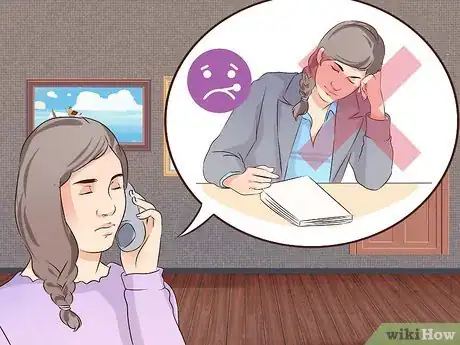
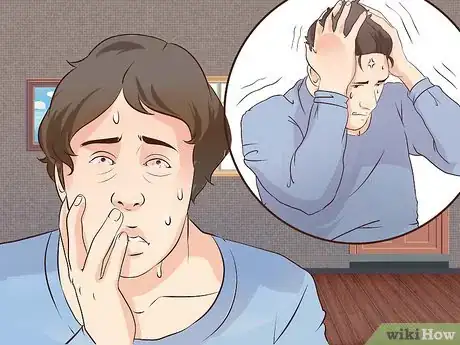


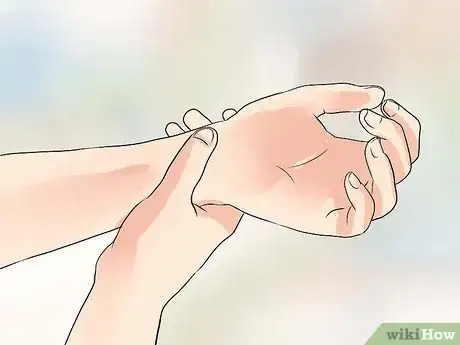

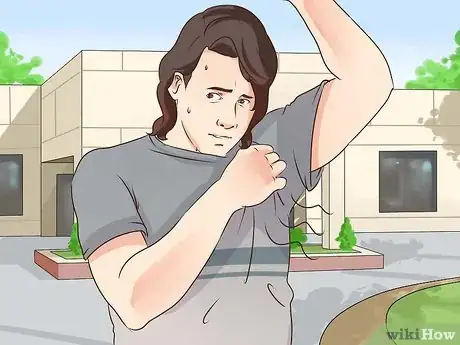


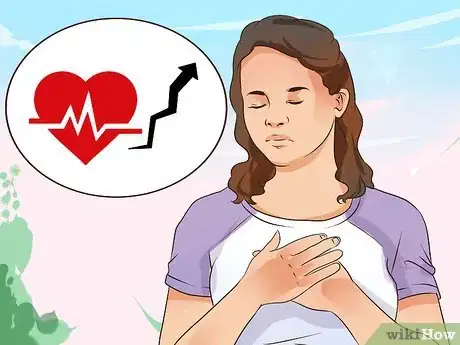
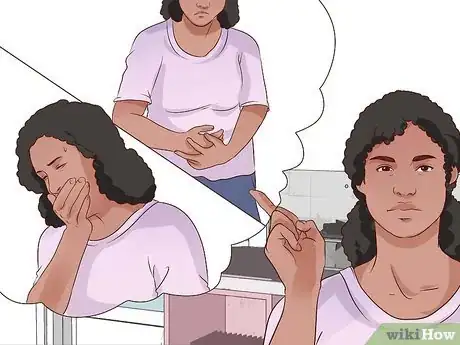

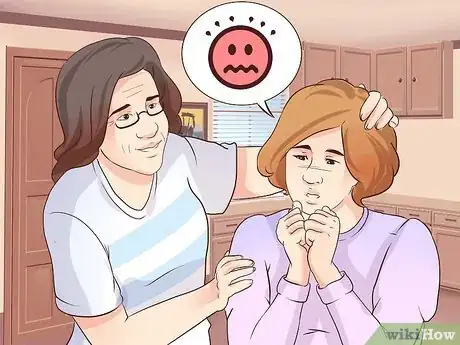
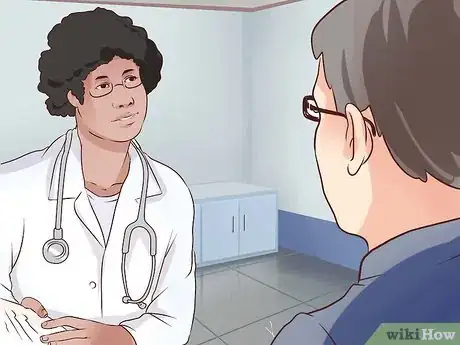

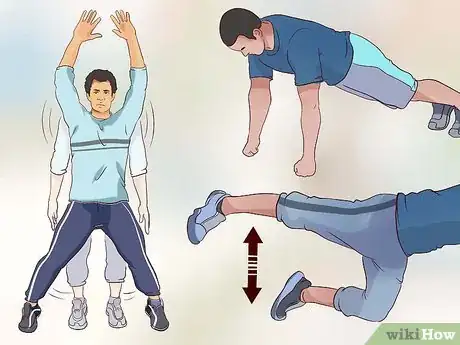



































































Medical Disclaimer
The content of this article is not intended to be a substitute for professional medical advice, examination, diagnosis, or treatment. You should always contact your doctor or other qualified healthcare professional before starting, changing, or stopping any kind of health treatment.
Read More...